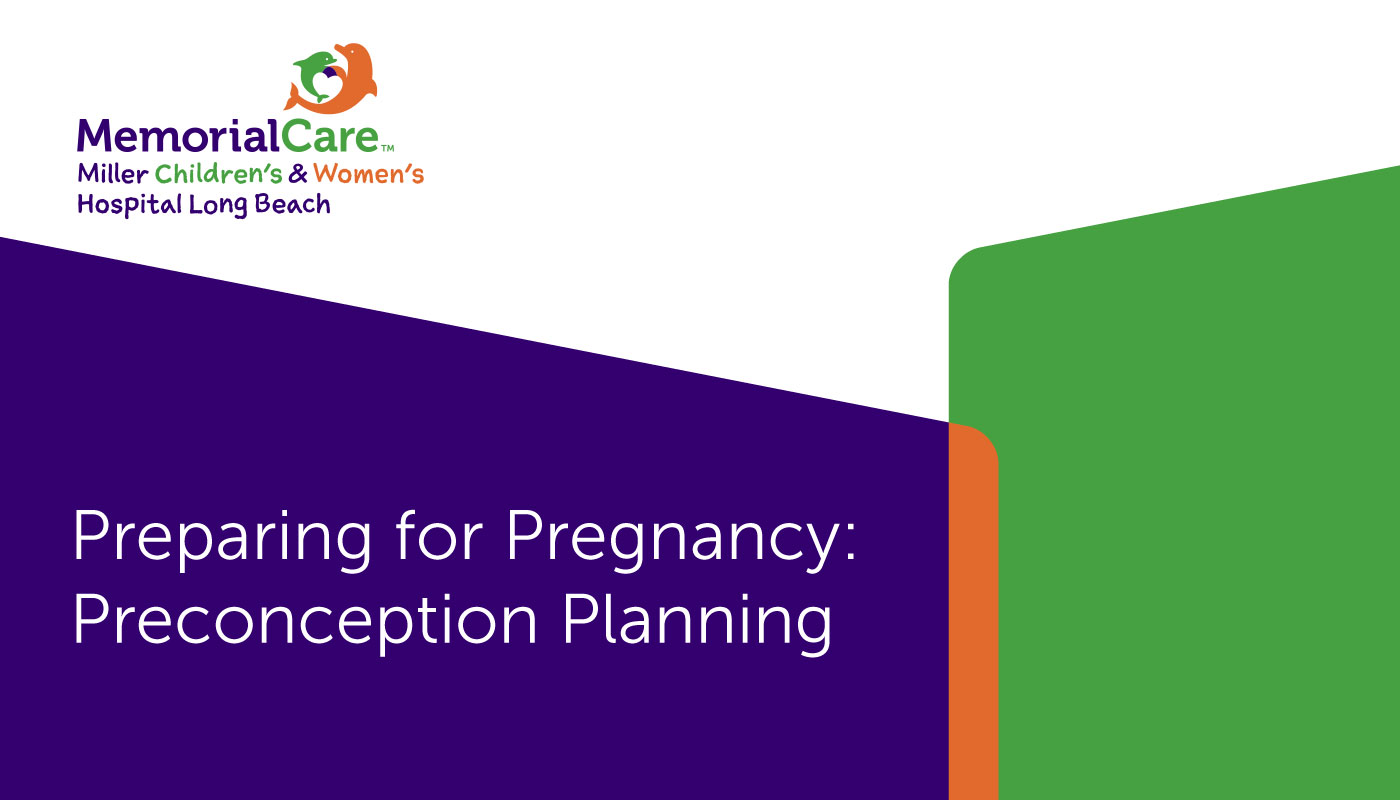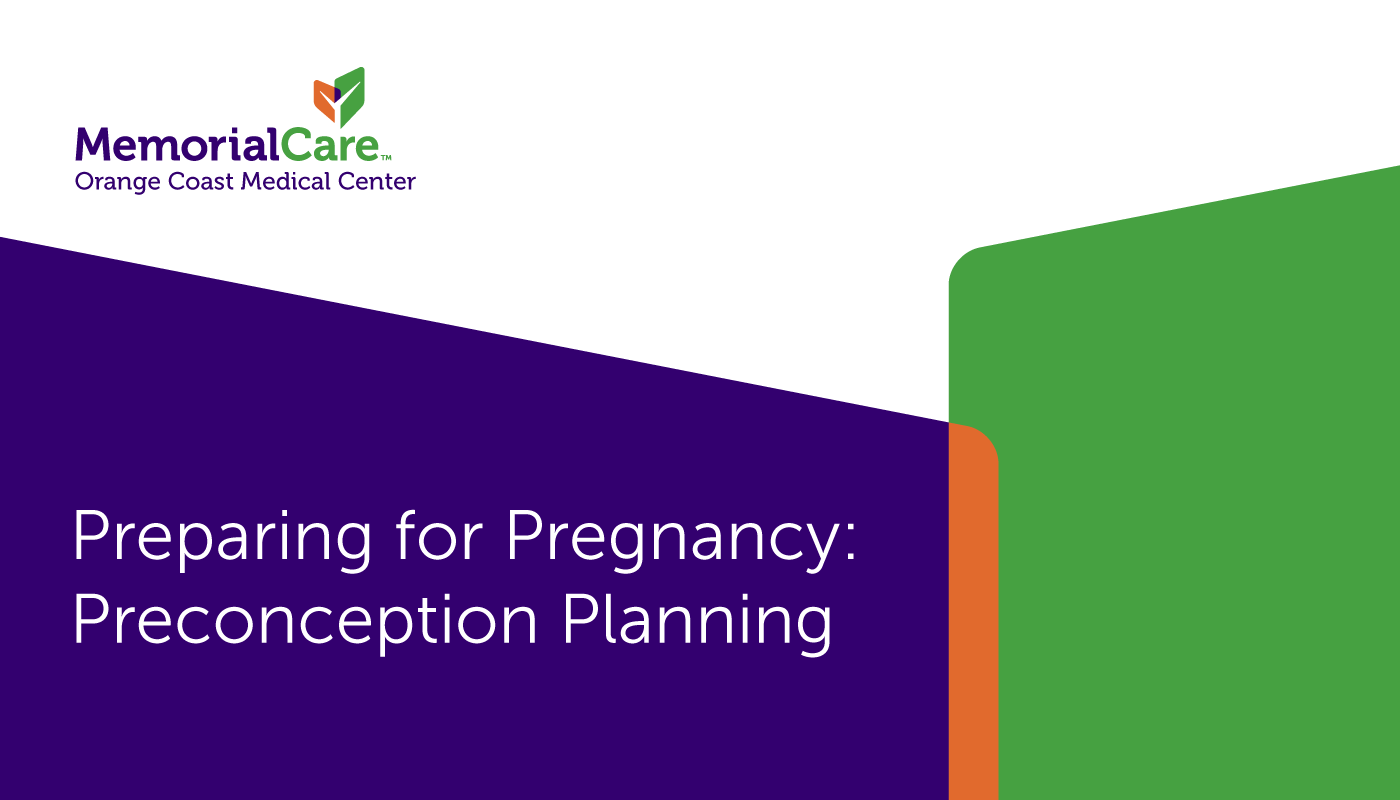Preconception planning will help you prepare for the best possible pregnancy. Women often schedule their first prenatal visit after their eighth week of pregnancy. However, studies show that many factors can affect fetal development during the critical first 60 days, sometimes resulting in problems later on.
Couple’s Family Health History
To prepare for the best possible pregnancy, preconception planning is essential. During preconception planning, a physician will evaluate your health status, family history, environmental circumstances and lifestyle. This includes any chronic diseases you may have such as asthma, diabetes or high blood pressure. Adjusting medications and treatments to protect the fetus when conception occurs is an important part of preparing for pregnancy.
A couple’s family history also plays a key role in preconception planning. If inherited diseases such as Tay-Sachs or sickle cell anemia run in the family, genetic testing can assess the likelihood of passing on these diseases. If the woman’s mother suffered miscarriages and preterm deliveries, it can be a red flag for inherited tendencies that should be monitored. Screening may also be conducted for HIV, hepatitis B and other conditions that could affect a pregnancy. The vaccination history of women who plan to become pregnant is also reviewed to ensure that immunizations are current.
Preventive Measures
During preconception planning your doctor will discuss preventive measures such as avoiding alcohol and taking prenatal vitamins, including folic acid. Beginning a prescribed vitamin regimen at least three months before becoming pregnant is extremely important. It significantly reduces the possibility of defects that can affect a baby’s brain and spinal cord.
Preconception Planning Recorded Presentations
The videos below are of preconception planning classes hosted by our Certified Nurse Midwives and OB/GYNs. They include information about steps you and your partner can take to help prepare for pregnancy, CNMs and OB/GYNs and information about our childbirth centers.
Have you seen a doctor for preconception planning?
Planning for Pregnancy - A Virtual Class
Thinking about starting or growing your family? We invite you and your partner to join us to gain insights from an OBGYN and the MemorialCare Saddleback Medical Center team. Learn what you and your partner can do before you get pregnant to give your baby a healthy start.
- Learn about reproductive planning, reducing risks and optimizing health, your partner’s role and more.
- Get your questions answered by a leading obstetrician.
Find an Upcoming Event Date
What you do before pregnancy is just as important as what you do during pregnancy.
Planning to start your family can be an exciting time. For many couples, getting ready for a new arrival often begins once you confirm you are expecting. Everyone knows the importance of prenatal care, but by the time you learn you are pregnant, you may have already missed a critical window of opportunity to ensure a healthy start and boost the lifelong potential for your child.
To prepare for the best pregnancy possible, preconception planning is essential. There is evidence that many preconception interventions can reduce the risk of adverse pregnancy outcomes such as birth defects, miscarriage, low birth weight, and preterm delivery.
Our Preparing for Pregnancy class focuses on steps you and your partner can take to reduce risks, promote a healthy lifestyle and increase your readiness for pregnancy.
Topics include:
- Reproductive planning
- Family history & genetic factors
- Health considerations
- Undiagnosed medical conditions
- Medications
- Nutrition & supplements
- Exercise
- Immunizations
- Mental health & stress
- Environmental exposures
- Substance abuse
- Activities, travel & recreation
- Fears about pregnancy
- Work-related issues
- Your partner’s role
- Preconception care
- Midwife delivery options
All parents want what is best for their child. We invite you to join us to learn more about what you can do to help give your baby a healthy start even before conception occurs.
There are many decisions you need to make when planning to start a family, but none is as important as choosing the right place to deliver your new bundle of joy.
Over 30 Years of Special Deliveries
For over 30 years, we’ve been providing exceptional care to new moms and their little miracles. Expert physicians and experienced, supportive nurses are just the beginning. It’s our unique little touches that add up to a truly extraordinary experience.
The Basics and Beyond
Each of our newly renovated, private labor, delivery, recovery and post-partum (LDRP) suites is designed to provide a calm, nurturing environment where you, your baby and family can bond. To ensure your care and comfort, we are one of the only area hospitals to offer obstetricians, anesthesiologists and neonatologists on site 24/7, which means we are always ready to deliver when you are.
Over the years, we’ve gained extensive experience in the delivery of multiple births. We also support births by surrogate moms, so couples who cannot have children on their own can become a family through this option. And our experienced staff offers a wide range of childbirth education classes to ensure you have the support you need both before and after your delivery.
Expert Care for Our Tiniest Patients
Every newborn is special to us. But sometimes babies arrive a little too early or have needs that require special attention. We hope you never need us, but should the need arise, our on-site, Neonatal Intensive Care Unit (NICU) stands ready to care for infants requiring immediate, advanced care. Our expertise in caring for premature and medically fragile infants gives you peace of mind when you need it most.
MemorialCare Saddleback Medical Center
The Women's Hospital
24451 Health Center Drive
Laguna Hills, CA 92653
Phone: (949) 837-4500





